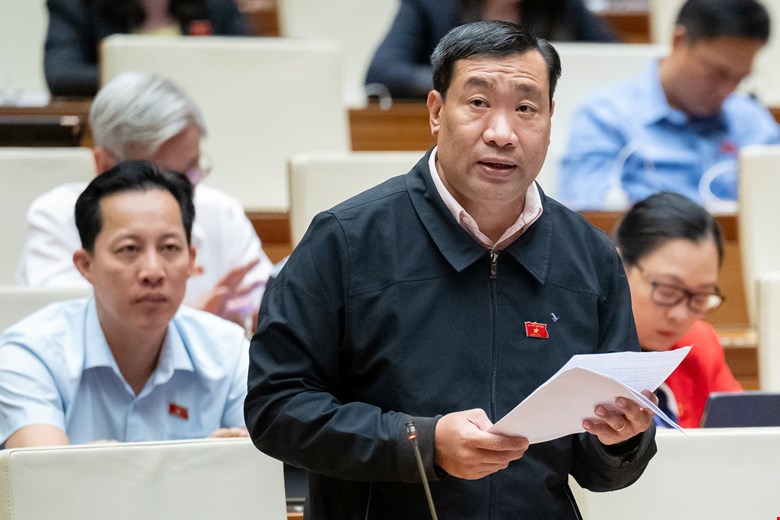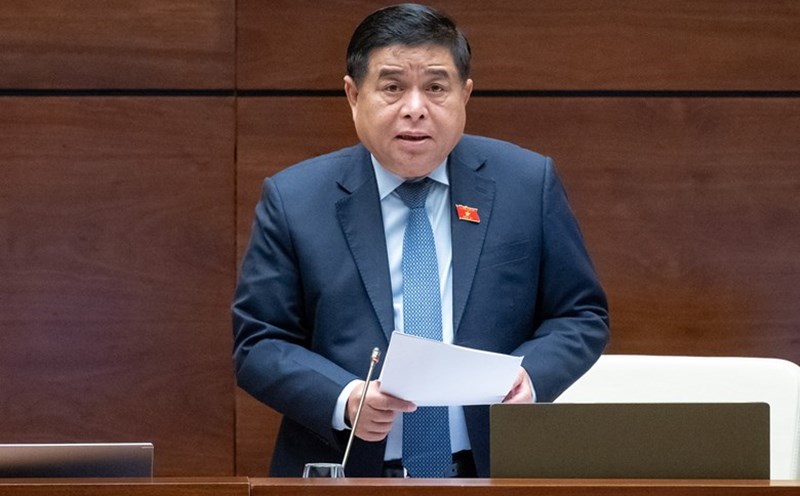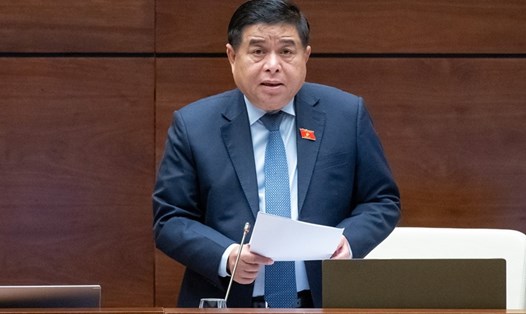This afternoon, November 6, continuing the 8th Session, the National Assembly discussed in the Hall the Draft Law amending and supplementing a number of articles of the Law on Planning, the Law on Investment, the Law on Investment under the public-private partnership model and the Law on Bidding.
Commenting on the Law on Investment under the Public-Private Partnership (PPP) model, delegate Thach Phuoc Binh (National Assembly Delegation of Tra Vinh province) said that expanding all investment fields of PPP projects to increase opportunities for more private enterprises to participate will reduce the state budget.
However, this needs to be based on practical assessments such as in Hanoi, Ho Chi Minh City, and Da Nang City to ensure a solid and effective foundation, especially when there are still challenges or not enough comprehensive summaries of PPP implementation in this field.
Reducing investment approval steps may shorten implementation time but risks reducing effective control and the ability to avoid risks for the state. It is recommended to specifically consider the basis and assess the impact of this elimination to avoid arising risks.
For BT contracts in some localities, a full summary has not been provided, so the limited benefits of this contract must be more clearly determined before legalization.
Propose clearer payment by land fund to ensure payment value corresponding to BT project to avoid loss to the state budget.

Delegate Pham Van Hoa (National Assembly Delegation of Dong Thap Province) said that recently, the demand for investment in transport infrastructure projects has been very large, but the mobilization of non-budgetary resources under the PPP method is still very limited.
This delegate explained that projects with difficult site clearance, low traffic volume, mountainous areas, etc., call for PPP investment. Meanwhile, projects with favorable site clearance and high traffic volume are invested from the state budget.
“This is unreasonable and unfair to PPP projects, so it cannot attract investors,” emphasized delegate Pham Van Hoa.
Delegate Pham Van Hoa added that the failure to completely resolve the remaining BOT projects in localities, such as not being allowed to collect fees or stopping toll collection, has caused difficulties for investors.
Therefore, delegates believe that it is necessary to supplement and amend some contents for PPP projects.
Regarding the scale of investment under the public-private partnership method and the minimum scale in all fields, delegate Pham Van Hoa said that this will contribute to creating conditions and increasing investor participation in PPP projects.
However, PPP projects applying the “revenue reduction percentage sharing mechanism” may lead to more risks for the state. Therefore, delegates suggested that the Government carefully consider each project to ensure efficiency for the state and investors, ensuring harmony of interests between the state and investors.
Regarding BT and build-transfer contracts, according to delegate Pham Van Hoa, this field has only been allowed to be piloted in Ho Chi Minh City, Hanoi, and Nghe An and has not yet been fully evaluated for impact or drawn from practical experience.
Therefore, the delegate agreed with the examining agency that there is not enough basis to legalize the regulations on the procedural mechanism of the BT contract type.
The delegate pointed out the negative aspects that have recently caused many officials to be entangled in legal trouble. "If the transfer of money or real estate to investors is not fully calculated, state assets will be lost or investors will be disadvantaged," the delegate said.
Therefore, delegates suggested that depending on the projects, instead of BT, public investment or PPP investment would be more convenient.











